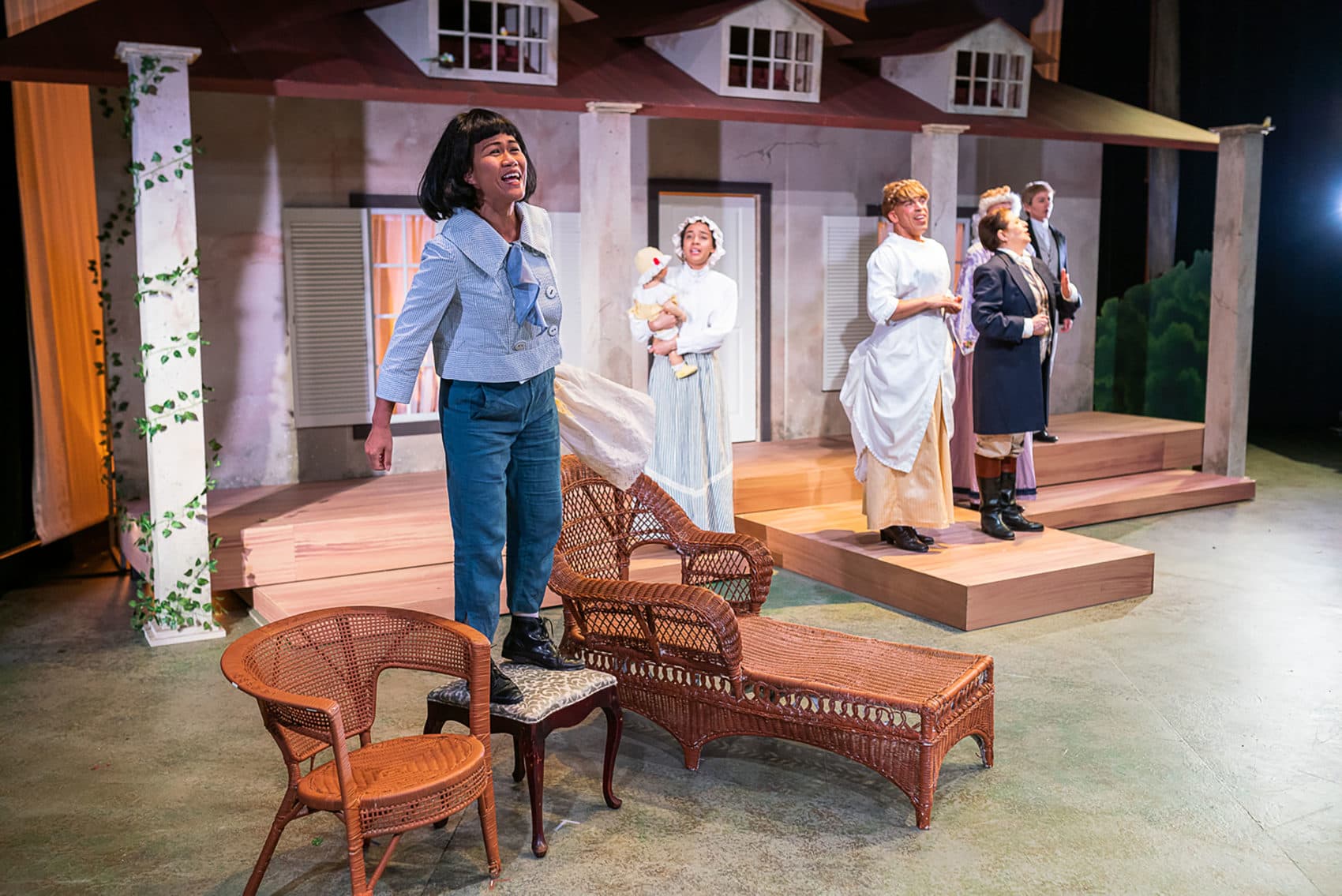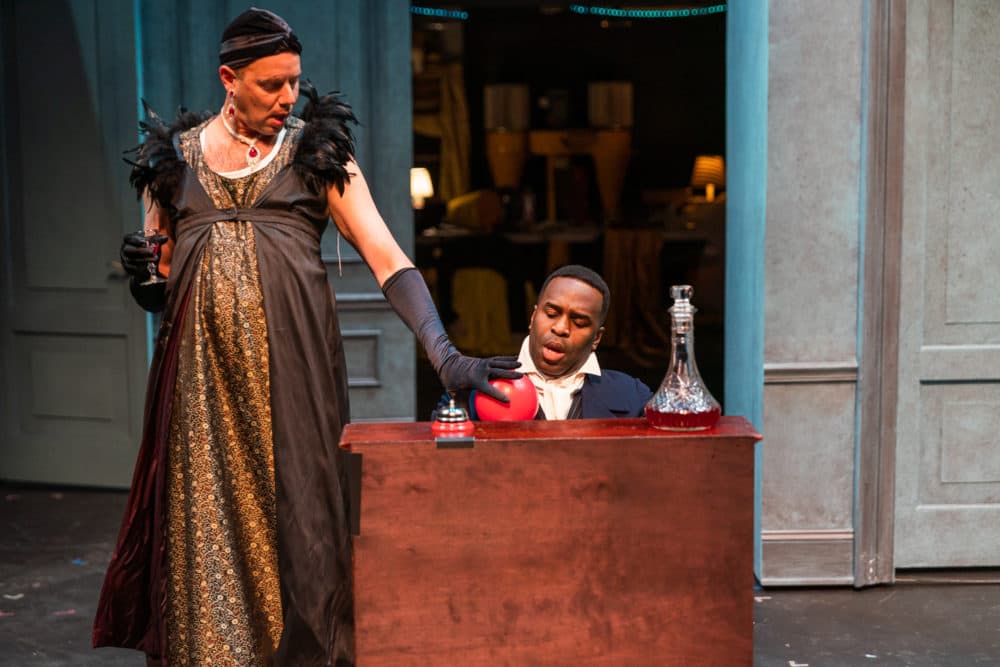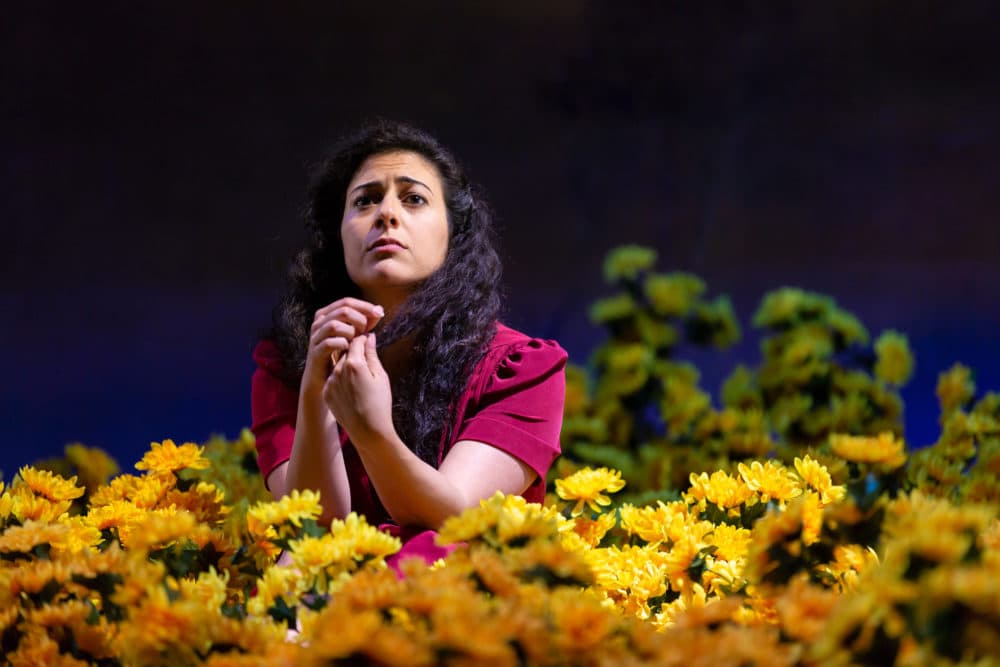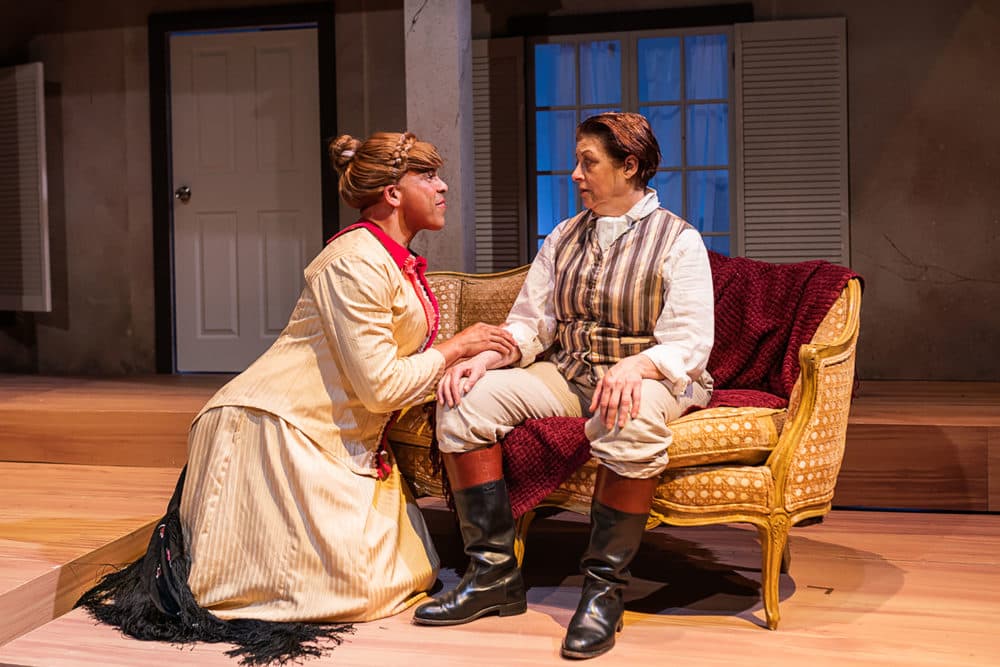Advertisement
Review
From Gender Bending Roles To Fun Feminists, Nora Theatre Company's 'Cloud 9' Has What It Takes

In the aftermath of the 2016 election it seemed that you couldn’t step foot in a theater without the play reminding you of Donald Trump’s presidency. In 2019 in the wake of the #MeToo movement and other gender-based discussions, it seems that every production today touches on those issues.
But what does it take for a play to reach across the centuries and inspire us on both an emotional and intellectual level? Whatever the answer, it’s obvious that Caryl Churchill’s “Cloud 9” has exactly what it takes, particularly in the top-notch production by the Nora Theatre Company (at Central Square Theater through June 30).
It comes at a time when any number of theaters are reaching back to the past to explore women’s issues today. Actors’ Shakespeare Project is mounting Kate Hamill’s adaptation of Jane Austen’s “Pride and Prejudice,” the Huntington Theatre Company is showing Elliot Norton Prize-winner Melinda Lopez’s reconfiguration of Federico García Lorca’s “Yerma” and Greater Boston Stage Company and the Front Porch Arts Collective are mounting a gender-bending “Three Musketeers” in Stoneham.

“Pride and Prejudice” (at Tufts Balch Arena Theatre through June 29) is an amusing romp through the Jane Austen novel, recapturing what now seems the preposterousness of women unable to inherit property from their father and being forced into loveless marriages in order to survive. In Hamill’s adaptation, men switch genders playing dual roles. But is the effect, like other plays based on Austen works, anything more than cute? Not really. It’s the Austen films that really capture the full wit, wisdom and progressive prose of Austen’s novels.
The Huntington’s “Yerma” is the opposite. At its poetic best it reminded me of everything I loved about studying modern theater in general and Lorca in particular back in the 1960s. In the end, though, it seems a mostly academic exercise in the history of modern theater, as well as the history of women’s submission to patriarchal priorities.

It’s “Cloud 9” that really puts head and heart together, a smarter and more rollicking exercise in gender bending than “Pride and Prejudice” and one that speaks to contemporary women’s issues more forcefully than “Yerma.” (I haven’t caught up to “The Three Musketeers” yet.)
Churchill’s play begins in 1880 colonial Africa and then skips ahead to London in 1979, when it was written. The characters have only aged 25 years in the interim and are played by different actors, but it’s all part of the fun. Churchill is a second-generation member of the Theater of the Absurd — she and Tom Stoppard are probably the last living members of that delicious movement, though Stoppard pretty much converted to realism decades ago.
The Guardian named the two of them Britain’s greatest living playwrights (I’d throw in the Irish firm of McDonagh, McPherson and Murphy). Churchill’s plays are the ones that seem to speak to the moment. The Huntington Theatre Company reminded us of her power last year with “Top Girls.” Carolyn Clay’s review could just as easily apply to “Cloud 9": "Churchill is such a strikingly original writer that even her old — this one set in the Thatcher thicket of the early 1980s — seems new.” Commonwealth Shakespeare Company put together two of her shorter plays into the remarkable “Universe Rushing Apart: Blue Kettle and Here We Go” later in the year.
The smaller, barer-boned Nora production is every bit as good. Churchill’s prescience as a feminist is fully on display. The playwright’s aim was to compare colonial repression of the 19th century with sexual repression of the 20th. The gender bending is funny, but not jokey. Ditto the race bending. In the first act, a black servant named Joshua is played by a white person because Joshua wants to be white. A boy named Edward is played by a woman to show the absurdity of thrusting macho values on the young.
Advertisement
Gender roles loosen in the second act — homosexuality and bisexuality are explored, even publicly — but the characters still struggle to find their identities amid soul-crushing preconceptions. That they each come out the other side in decent shape is a lesson in letting your characters go where they want to go rather than reducing them to ideological stick figures.
And what a boost Churchill gets from artistic director Lee Mikeska Gardner and the terrific multiracial cast she’s assembled at the Nora, long a champion of female artists. Stephanie Clayman is a stalwart of the local scene and her ability to go from macho imperialist Clive in the first act to his proper, passive-aggressive wife in the second is astounding — it’s hard to believe she’s the same actor.

The rest of the cast is mostly new to me, but their range, humor and empathy are a joy to watch, none more so than Sophorl Ngin as little Edward in the first act and his sister Victoria, his sexy sister in the second act. It’s almost unfair to single anyone out, though. It’s an ensemble of equals. If they were a traditional repertory company, like the old American Repertory Theater, they’d be worth a subscription just to watch them work and grow together.
For now, bask in the glow of “Cloud 9.” It’s about 2 ½ hours, but it’s one of the best productions of the season.
